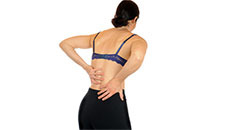Research has firmly established that exercise can be a powerful tool when it comes to combatting issues like depression, anxiety and stress.
If you’re like many people, the first few weeks of winter bring a welcome seasonal change. But as the cold, rain, and dark set in, so can a case of the winter blues. As you might have heard, research has firmly established that exercise can be a powerful tool when it comes to combatting issues like depression, anxiety and stress. So how can you use fitness to make your winter brighter? Here are a few suggestions.
Find your space
When the weather is nice, it’s easy to head outside and get in some physical activity. Once winter arrives, however, you need to find a way to bring your workout indoors. Find your indoor workout space. That might mean joining a gym, or it might mean clearing out some room in your home. Whatever the case, find a place where you have the room and tools necessary for a good workout.
Build consistency
Don’t wait until the winter blues creep in to start working out. Establish a consistent workout routine ahead of time to help stave off depression before it starts. Choose days and times for your workout, and stick to your schedule. If you find that you have trouble keeping on track, consider enlisting a workout partner to help with motivation.
Get your cardio
While resistance training has been shown to combat depression, most studies assert that cardio is the surest form of exercise to stave off the blues. This is because it releases a range of feel-good endorphins and other brain chemicals. To get the most out of your cardio routine, be sure to get at least 30-45 minutes of heart-raising exercise three to five times a week.
Think high-intensity
Research has shown that the more you get your heart rate up, the stronger the anti-depressant effects will be. That means increasing the intensity of your exercise.This can be accomplished in a number of ways – by moving faster, increasing the difficulty with elevation or weights, or by using a HIIT routine. But if increasing the intensity of your workout isn’t an option, don’t let it dissuade you. Low-intensity exercise is still better than none at all.

Some is better than none
To get the maximum effect out of your routine, you’ll ideally work out consistently, meaning three to five times a week. But studies have shown that even inconsistent exercise is better than no exercise at all.So if maintaining a regular regimen is impossible, do your best to get in the sporadic burst of exercise as often as possible. That could mean a quick visit to the gym, inserting sets between activities at home, or even taking the stairs rather than the elevator.
Support your efforts with proper nutrition
A healthy diet is an essential aspect of any fitness routine. In fact, if you’re working out extensively without eating enough to accommodate the efforts, you could actually be doing more harm than good due to the added stress put on your body. Be sure to get a balance of protein and healthy carbs from whole, unprocessed foods. There are even healthy foods that have been shown to combat depression, like salmon, sweet potatoes, avocados, broccoli, and leafy greens.
Don’t expect immediate results
We all wish that exercise would deliver its effects instantly as if by magic, but that’s not how it works. Just like it takes time to burn off fat and gain muscle, you won’t see the full anti-depressant effects for around two weeks. In other words, don’t give up.
Get plenty of sleep
Regular, deep sleep not only helps to stave off depression, but is an essential part of recovering from a workout. At the same time, working out helps to promote quality sleep. So be sure to get the recommended seven to eight hours every night.





